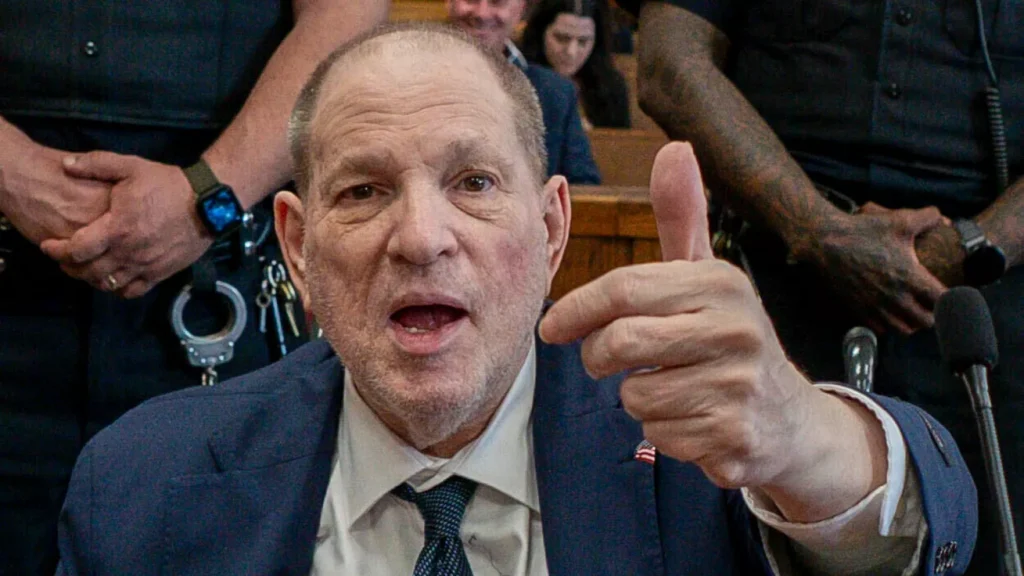Disgraced filmmaker, Harvey Weinstein was found guilty on one charge and acquitted on another in a New York sex-crimes retrial that revisited key accusations from the landmark #MeToo case that first brought him down.
On June 11, following six days of deliberation, a 12-person jury convicted Weinstein of a first-degree criminal sexual act related to the assault of former production assistant Miriam Haley in 2006. He was acquitted on a separate charge stemming from the alleged 2002 assault of Kaja Sokola, who was 16 at the time.
The jury has yet to reach a verdict on a third charge — third-degree rape — and will continue deliberations on Thursday, June 12.
Weinstein, 73, faces up to 25 years in prison for the criminal sexual act convictions and up to four years if convicted of the remaining rape charge. He is already serving a 16-year sentence following a 2022 conviction for rape in California.
This retrial was triggered after a New York appeals court overturned Weinstein’s original 2020 conviction and 23-year sentence, ruling that the judge improperly allowed testimony from women whose allegations were not directly part of the case. A new trial was ordered, and Weinstein again pleaded not guilty.
The retrial featured testimony from three women: two who accused Weinstein of forcibly performing oral sex in 2006, and one who said he raped her in 2013. One of the central accusers, former actress Jessica Mann, had also testified in the original trial that Weinstein raped her in a New York hotel room.
Prosecutors portrayed Weinstein as a serial predator who exploited his power in Hollywood to lure women with promises of career opportunities before assaulting them in private. His defense argued that all encounters were consensual and accused the women of fabricating their claims after failing to gain fame.
Weinstein’s legal team repeatedly pushed for a mistrial. Defense attorney Arthur Aidala made a formal request after a sick juror was replaced by an alternate, but the judge denied the motion. Previous requests, including objections to the prosecution’s closing statements, were also denied.
The trial concluded as Weinstein’s health continues to decline. Incarcerated since 2020, he has faced multiple hospitalizations and told a judge in January that he wasn’t sure how much longer he could survive. His medical conditions include chronic myeloid leukemia, diabetes, heart disease, sleep apnea, thyroid issues, high blood pressure, obesity, and chronic back pain.
Weinstein’s New York and California cases helped spark the global #MeToo movement and led to a reckoning in the entertainment industry. Over 100 women, including prominent actresses, have accused him of misconduct.

